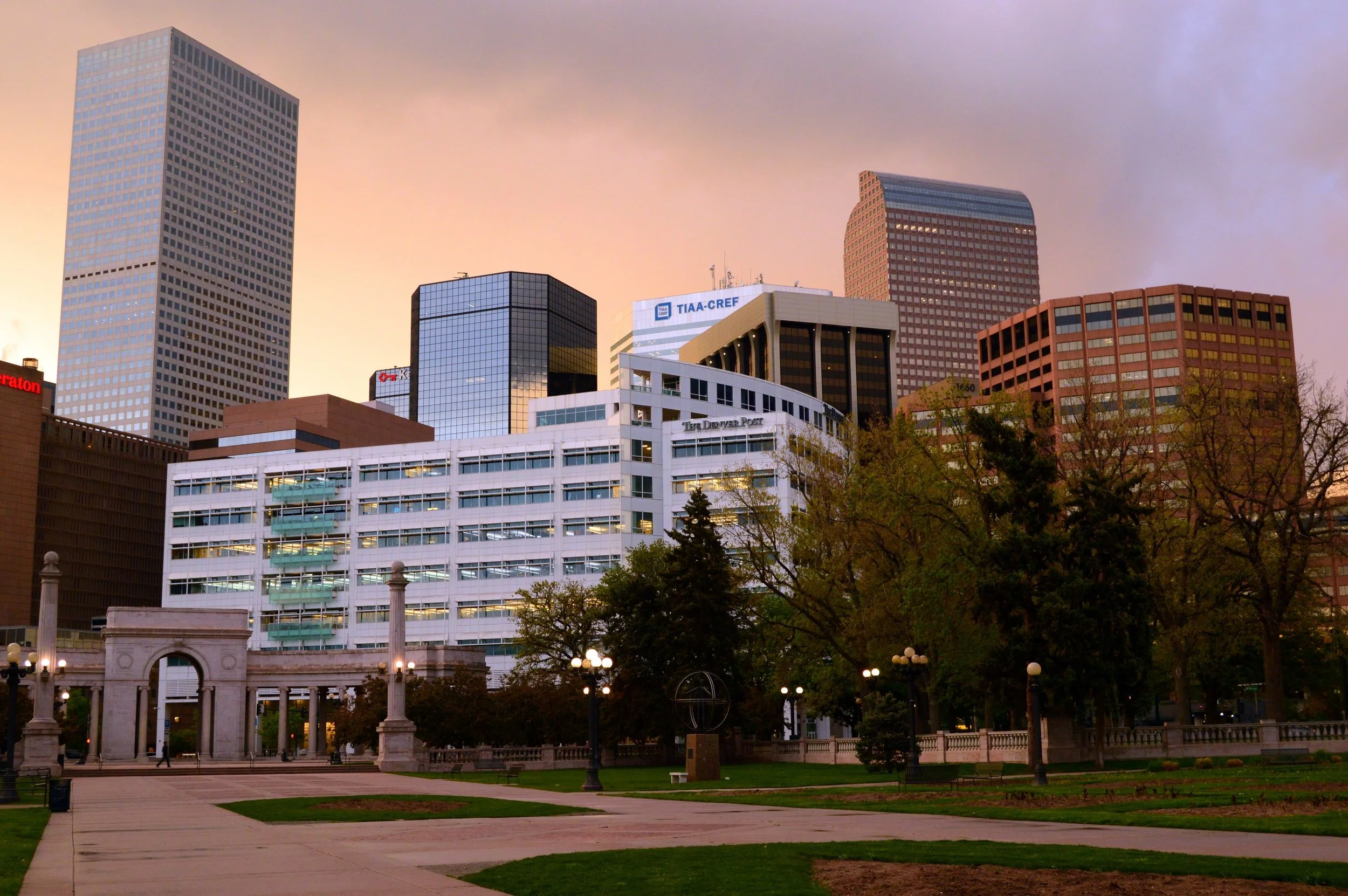Denver’s Big Stick for Buildings
My client was steamed. “You can’t possibly think this is a good idea,” he said, glowering at me across a conference table with his arms folded tight as if to restrain himself from throwing punches or office accoutrements.
The client had summoned me to his office to discuss a couple of his Denver commercial properties. The “idea” to which he was referring was mandated upgrades to big building systems that drive energy use – namely lighting, heating and cooling. His situation was more difficult than most because he owns and operates cross-docks, highly trafficked warehouses with trucks coming and going 60-plus hours a week and dock doors open to ventilate truck exhaust.
One building was often 40°F when it was 20°F or colder, even though ceiling-mounted, gas-fired heaters ran full-tilt. He had already installed high-efficiency heating, a largely useless gesture because warming his doors-open building heats the neighborhood, not his interior spaces.
My client's in good company. To nosedive emissions, both Denver and the State of Colorado have enacted building performance standards (BPSs), which require building owners and operators to ratchet down building energy use over a period of years and in Denver to switch heating, cooling and ventilation (HVAC) systems to electric power. They’re like energy building codes for existing buildings. By 2050, approximately 62 percent of buildings will have been built before 2023, and the City and County of Denver (Denver) says this is the only way to cut building greenhouse gas emissions, which contribute half of the city’s emissions.
In order to meet long-term climate goals legislated by government entities, advocates say that voluntary buy-in has barely scratched the surface with only 1 to 2 percent of building owners opting to upgrade building efficiencies. At that rate, it will take 50 years to retrofit all commercial buildings, well past the drop-dead deadlines climate scientists have given for averting the worst of climate change.
As of 2023, three states and 9 U.S. jurisdictions have implemented BPSs – Colorado, Maryland and Washington, D.C., plus Boulder, Denver, Reno, other entities and all U.S. federal buildings. Even so, building owners, operators and natural gas proponents have filed lawsuits to stop the City and County of Denver and the State of Colorado.
“Proving building energy upgrades are too expensive now includes factoring in the social cost of carbon at $83 per ton so heavy-carbon equipment and activities are at a big disadvantage.”
By 2027, Denver has also said that half of a building’s HVAC and water heating must be electric, though owners can file exemptions if the expense is too heavy a lift. That too-expensive calculation, however, includes the social cost of carbon, priced today at $83 per ton in Denver’s municipal code.
Factoring in that social carbon price will make proving financial incapability a lot harder because it assesses a big cost on heavy-carbonaceous activities (read, natural gas versus Xcel doubling down on clean energy in the electric grid - and fast). Yet fashion-forward entities like the European Union (EU) and decidedly fashion-unforward organizations like ExxonMobil, Bank of America and PetroChina all use a carbon cost to evaluate projects.
In another lawsuit, restaurant, hotel, building and even propane industry groups argue that Denver’s building codes discriminate against natural gas appliances by banning them in new commercial and multi-family buildings from 2024 on. Plaintiffs seek to mirror what happened when the California Restaurant Association appealed a federal court to overturn a nat-gas hookup ban in Berkeley, Calif.
To be sure, the industry groups gunning for Denver are heavyweights, including the National Association of Home Builders, the Restaurant Law Center, the American Hotel & Lodging Association and the National Propane Gas Association. Yet across the country, more than 140 government jurisdictions have passed regulations calling for banning natural gas in buildings.
For now, I tell my clients to buckle up and start preparing for what so many other places are already doing. Even if Denver has to retrench, I suspect it won’t be full-scale – a trim rather than a full-on cut.
We are not legal, accounting or investment professionals, and we are not offering that type of advice here. We hope our expertise and thought leadership ignite exciting, transformative avenues for your business, and we ask you to consult with licensed, certified professionals to discuss your particular situation.





